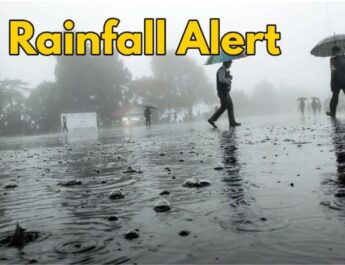New Delhi: On Sunday, the maximum temperature in Delhi soared to 38.2 degrees Celsius, exceeding the seasonal average by approximately three degrees, as reported by the India Meteorological Department (IMD). Similar high temperatures were observed in various regions across the country, prompting the weather agency to issue a heat wave warning for multiple areas in India.
The IMD has forecasted a heat wave for the upcoming week in Northwest India, particularly affecting regions in Rajasthan, Gujarat, and Delhi, among others.
On Monday, the IMD anticipates that heat wave to severe heat wave conditions will likely continue in certain areas of Gujarat’s Saurashtra and Kutch, as well as in West Rajasthan. Isolated regions in East Rajasthan, Gujarat, Himachal Pradesh, Punjab, Haryana-Chandigarh-Delhi, and western Uttar Pradesh are also expected to experience heat wave conditions. Coastal regions, including parts of Gujarat, Konkan, and Goa, may face hot and humid weather.
On Tuesday, heat wave to severe heat wave conditions are expected in some areas of Rajasthan, while isolated pockets in Gujarat, Punjab, Haryana, Delhi, western Uttar Pradesh, and Madhya Pradesh may also experience heat wave conditions.
On Wednesday, isolated areas in Eastern Rajasthan are likely to encounter heat wave to severe heat wave conditions, with heat wave conditions anticipated in parts of Gujarat, Punjab, Haryana, Delhi, western Uttar Pradesh, western Rajasthan, and Madhya Pradesh.
On Thursday, isolated pockets in Gujarat, Punjab, Haryana, Rajasthan, and Madhya Pradesh are expected to experience heat wave conditions.
A red alert has been issued for certain areas in western Rajasthan on Monday, indicating a risk of heat-related illnesses or heat strokes. It is crucial to ensure the well-being of vulnerable individuals during this time.
In Delhi, a yellow alert has been issued for Monday and Tuesday, indicating an increased risk of heat-related symptoms for those exposed to the sun for extended periods or engaged in strenuous activities. Residents are advised to minimize sun exposure, stay cool, and maintain hydration by drinking water regularly, even if they do not feel thirsty, to prevent dehydration.




